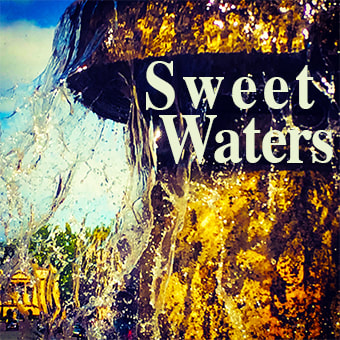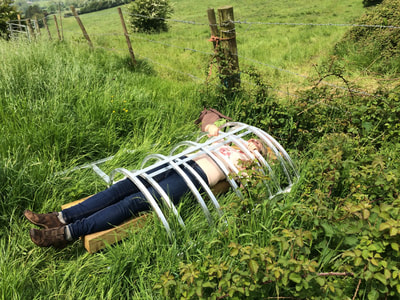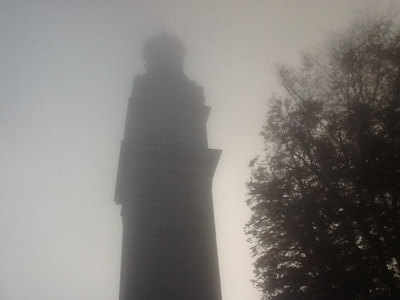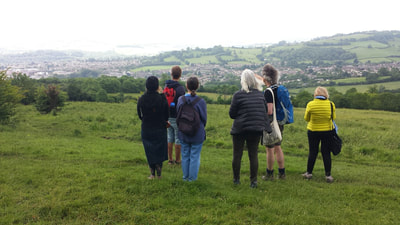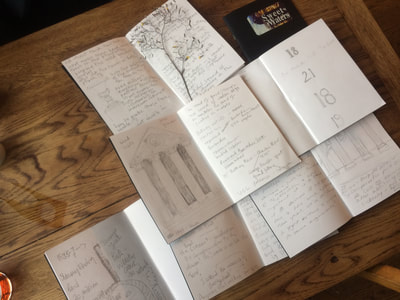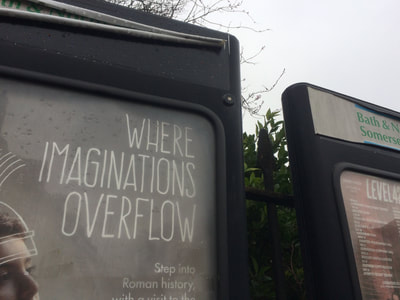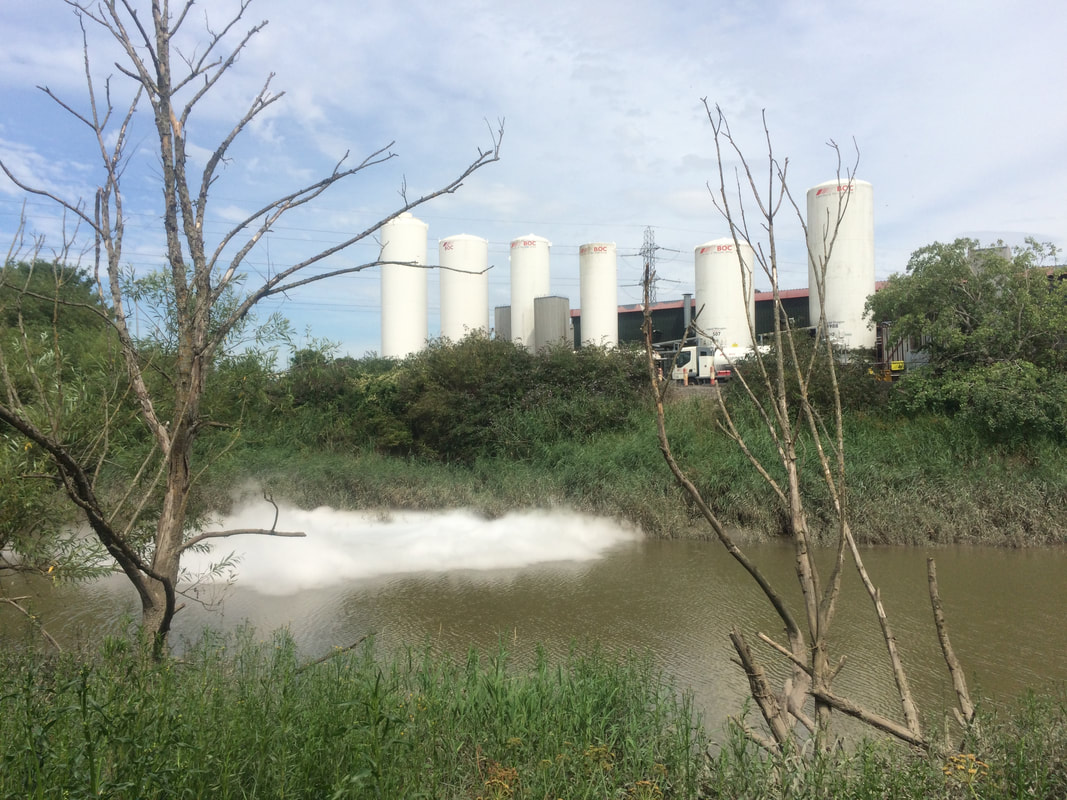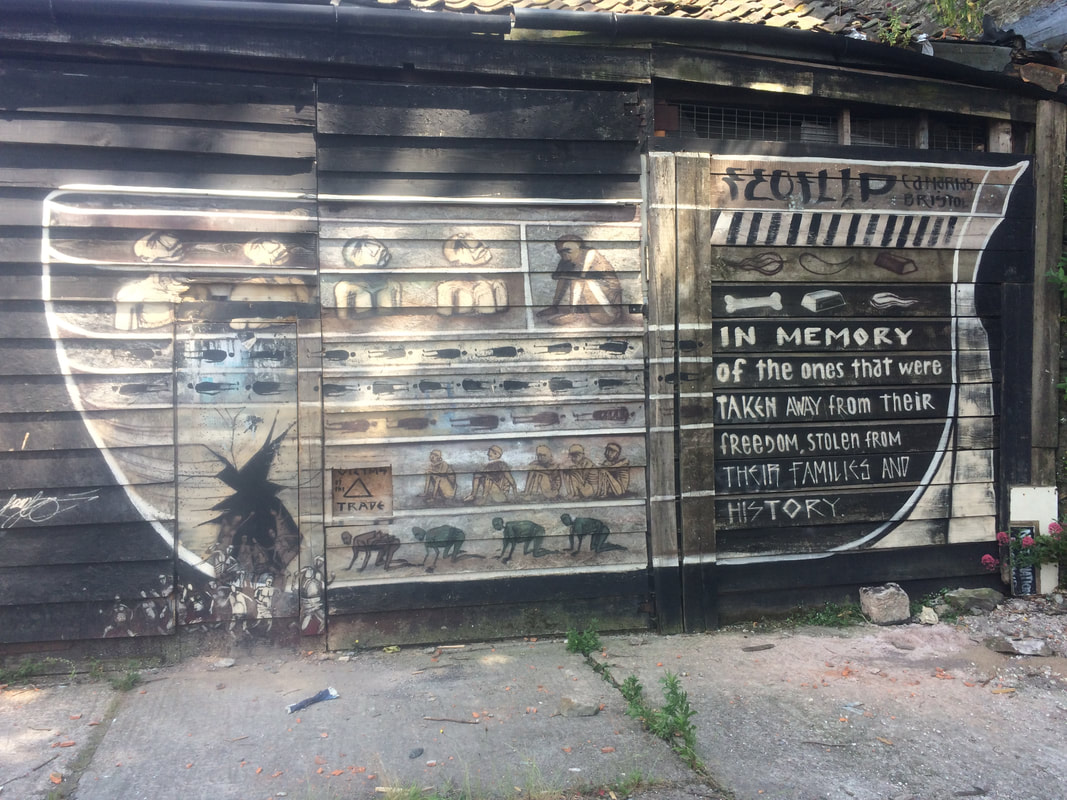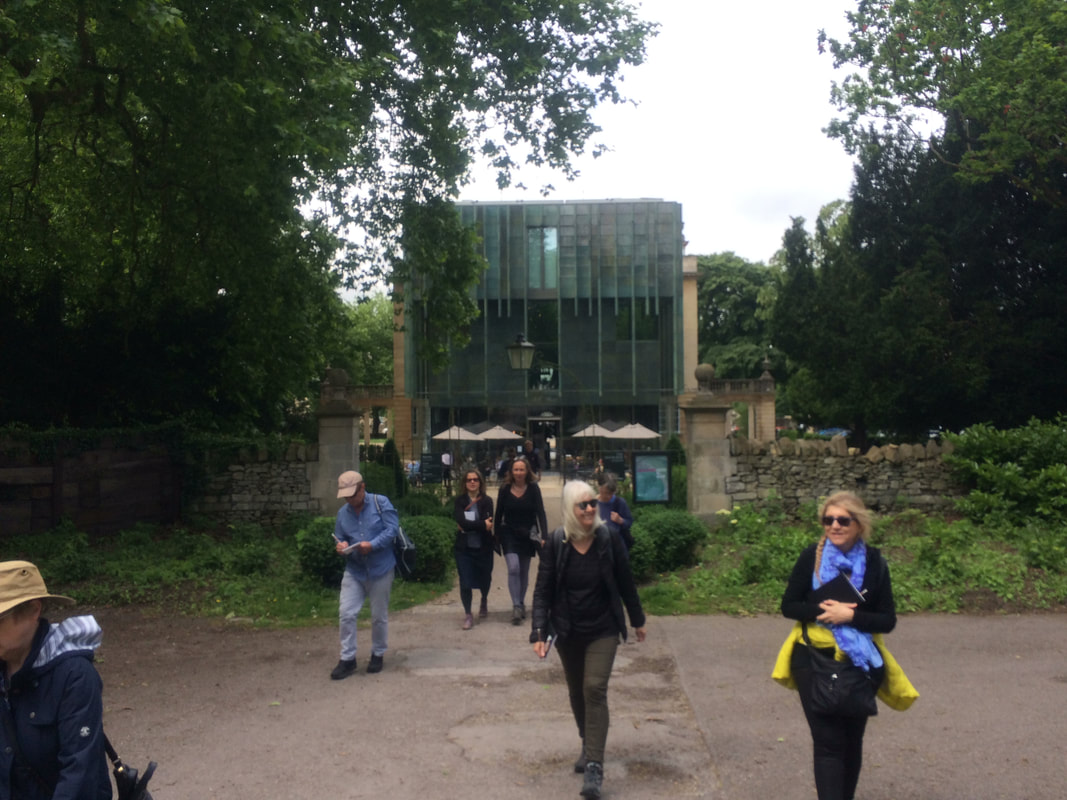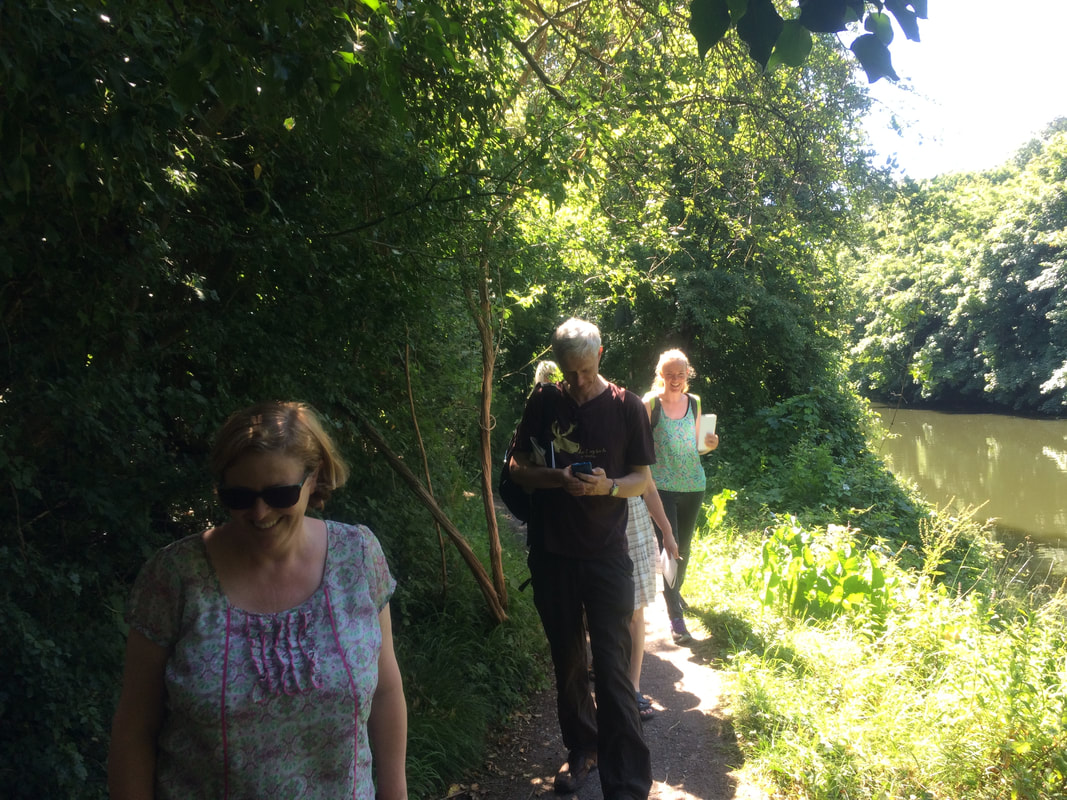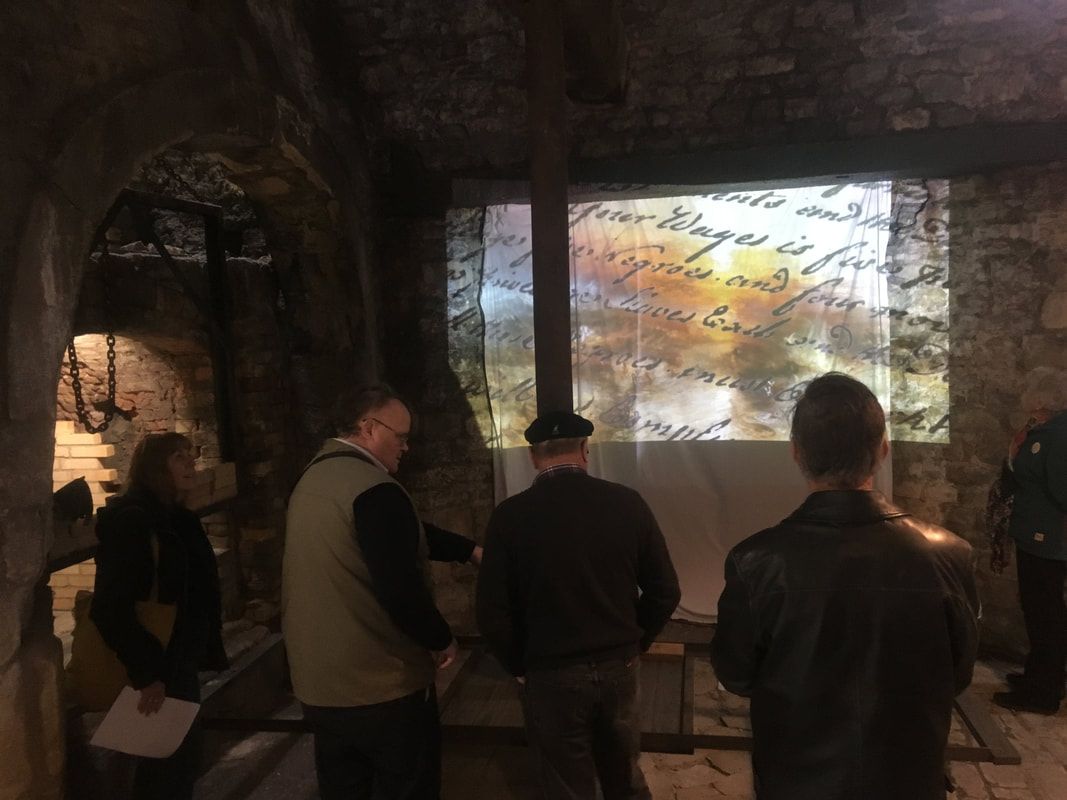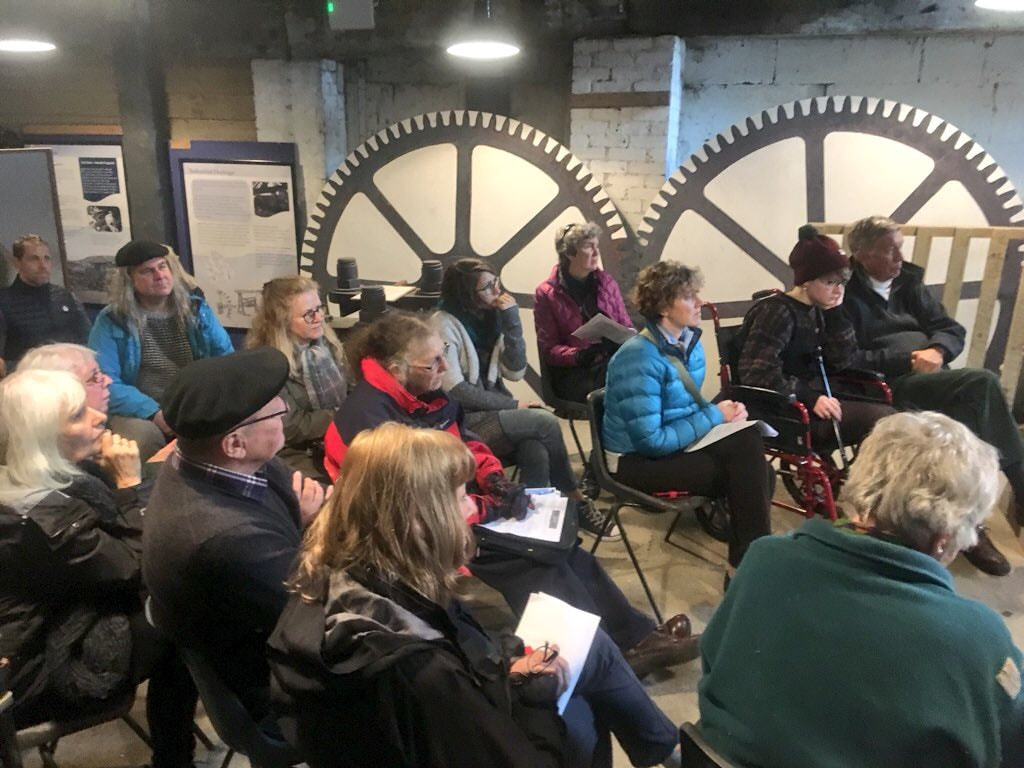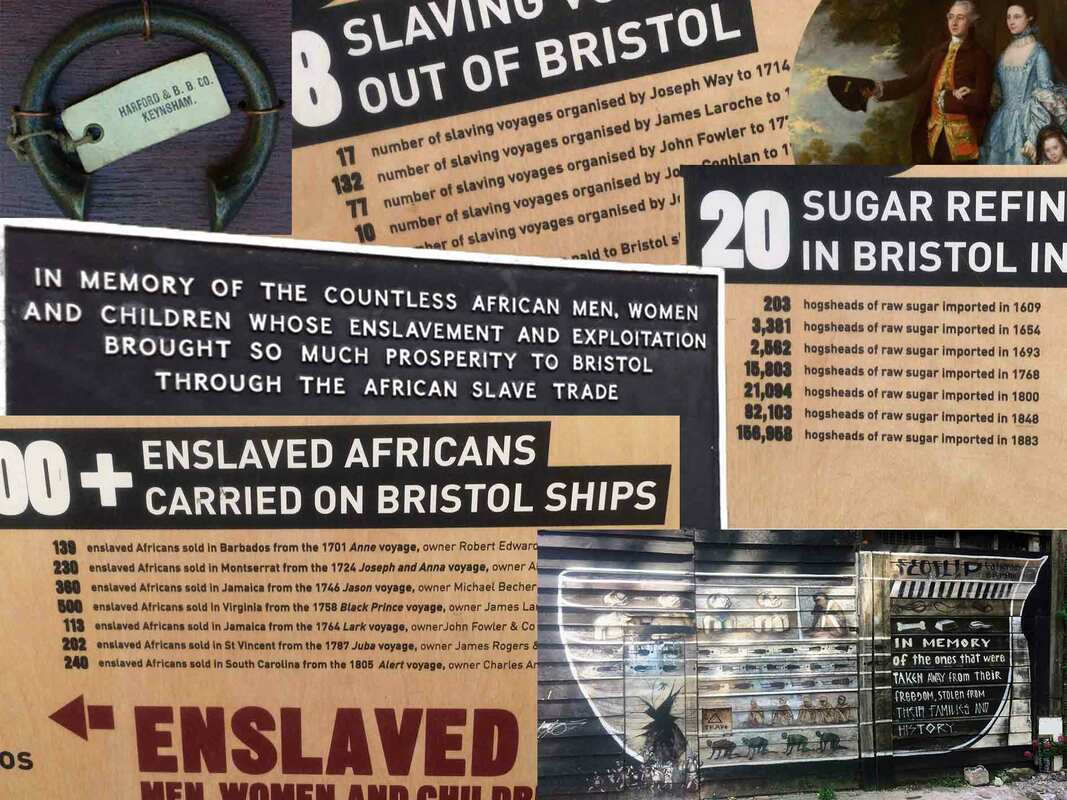Sweet Waters: sense-ing legacies of slave-ownership.
|
Walking with cycles of Water, Life and Trade exploring legacies and revealing resonances
|
|
Sweet Waters: starting points uses a clip from an interview Sarah Connolly did with Richard White. The video offers an overview of the project ideas in particular the mashing of the 'triangular trade' with a memory of the watercycle. Sarah did the interview as part of an Avon Stories podcast walking a section of the River Avon on the edge of Bristol. The full podcast with maps and images is on the Avon Stories website and also available via iTunes
|
The arrow from Richard White on Vimeo.
Water: 60% of the human adult body is water. An essential element: water powered mills manufactured the brass destined for the slave trading ships, raw copper and coal was transported on the river, brass and humans were shipped across the oceans. Water was essential for plantation irrigation and country park decoration. Sugar and other slave produced goods returned by sea and river. The River Avon washed away the sweat of the brass workers, returning slave ships were scrubbed down into it, while the tears of those who lost loved ones to the slavers flowed to the sea in the rivers of West Africa. In the water: blood, vomit, excretia, the dissolved and digested flesh of those who resisted, sea-sick, home-sick, tears of grief, tears of despair, blood of punishment and cold sweat of survival. In the vast Atlantic Ocean generations of lives thrown overboard as damaged goods, food for fish and cowries. Water has memory.
Life: In the water life and death. For those enslaved, the crossing from West Africa to the Caribbean was terrifying and deadly, many were killed or drowned, women and girls were raped, even the smallest acts of resistance suppressed with the utmost brutality. Those who survived were sold to plantation owners and most were put to work producing sugar, cotton and tobacco. Enslaved people, any children they produced and, in turn, their children, were the ‘property’ of the slave-owner. Some escaped and some rebelled. All found ways of resisting.
Trade: products made and transported on the River Avon shipped to West Africa and sold for enslaved people, materials produced and the wealth generated return on the tide up the River Avon. Sugar. Tobacco. Cotton. Timber. Speculation. Credit. Banking. Insurance. Wealth fueling industry and embodied in country houses, landscaped gardens and fine buildings. In Bath it was the sugar, the brass, the capital, the Hot Waters of the famous spa attracted those in good health for pleasure and those sick with tropical diseases for the Cure, all to network and display riches derived from an economic model based on unpaid labour. An incomplete cycle that drained people, talent and resources from West Africa and the Caribbean to accumulate wealth in Britain. At the abolition of slavery in the British empire in the 1830s the government set up a £20 million pound compensation scheme for slave-owners, enslaved people received nothing.
Legacies:
- Global warming begins at the hearth of the slave-owning nations, hurricanes today drawing up the warmed Atlantic waters.
- Colonial assertions of difference and white skinned dominance feed deep and long-lasting racism
- Inherited trauma of enslavement, abduction, rape, violence and degradation
- Weapons and munitions from England sold in West Africa escalate violence, war and dislocation.
- Cultures of addiction, sugar, rum, tobacco, tea, coffee, chocolate
- Slave-owner wealth embodied in landscape, country houses and cityscapes.
- Enslaved people who survived, carried beliefs, skills, stories and embodied memories into the new cultures they fashioned.
- Echoes of enslaved people’s resistance and survival resonate in popular culture
More images from the walks can be found here
Sweet Waters: walksWalking, as an act of free will, offers non confrontational, collaborative, embodied, reflective, creative opportunities to consider legacies and generate resonances.
A cycle of participatory performative walks along the River Avon from Bath to the sea; listening to the waters, sensing legacies of slavery and slave ownership. A series of creative and themed interventions and conversations took place:
|
Sweet Waters: soundings
|
Richard gathered field recordings, walkers shared social media, sketched and wrote; gathering material along the walk. The sound and video was presented at an installation at Saltford Brass Mill, a first attempt to work with this wealth of material and weave it through the research which underpins the project.
The Mill is a relic of an industry that operated between Bath and Bristol and once produced brass goods to be traded for humans in West Africa. These enslaved people were brutally transported across the Atlantic to work on sugar, tobacco and cotton plantations, A principle output from the brass mills on the River Avon were manillas, the currency of the trade. Here was the mint of the slave trade. One last water wheel still turns at Saltford. In developing the installation Richard was joined by Jeff Boehm gathering additional field recordings of the water powered hammer mill at Finch’s Foundry in Devon and developing his own response to the themes. Richard produced this sounding using the sounds of the walk and readings from the letters of instruction from investors to slave ship captains. You will also hear short excerpts from Derek Walcott's poem, The Sea is History'
|
Resonating from the walking-with and repatriating sounds of the manufacture of goods destined for the West Coast of Africa, Soundings responded to a watery sonic environment.
The installation included two live performances, Jeff Boehm reponded to the sound and rhythms of the mill and the story of the walk. Richard White delivered a performance prose response to the walks captured below on mobile phone.
|
Dont Mention the Sugar from Richard White on Vimeo.
Sweet Waters: sources and locations
A research visit to the M Shed in Bristol, The story of Bristol and its links to the transatlantic trade is beginning to be told, Bristol Archives has the evidence in logbooks, account books, contracts of all this. I went in search if the signatures of the men who financed this and found contract books, cargo books indicating in fine detail, what was on the ships, bargaining instructions for the Captains and the prices that they were to sell the captured Africans for if they survived the Atlantic crossing. Chilling guidance on the Captains 'privelege' to take an enslaved person or persons for themselves as a bonus for getting them to market.
